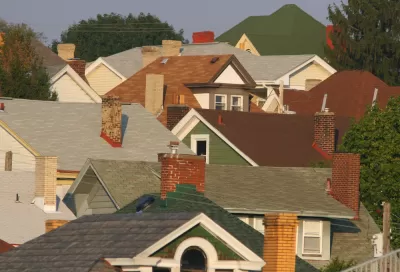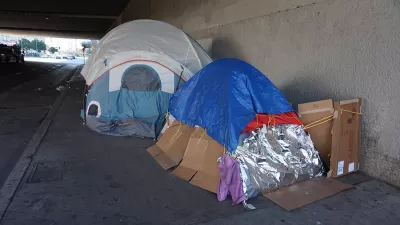Pittsburgh will continue its pursuit of a "source of income" law to protect against housing discrimination.

Pittsburgh created an ordinance in 2015 that forced landlords to accept federal housing vouchers—a so-called "source of income" rule. Last month, Allegheny County Common Pleas Judge Joseph James struck that law down, calling the law "invalid and unenforceable." Now the city plans to appeal that ruling.
Katie Giammarise reports:
At issue is a law that prevents property owners from discriminating against a tenant based on the person's “source of income.” City council passed the ordinance to address discrimination facing low-income tenants seeking to utilize subsidies, such as Housing Choice Vouchers, commonly called Section 8. The program gives low-income people a voucher to find a home in the private rental market; tenants must pay a portion of their income in rent with the difference made up via a federal subsidy.
The judge ruled in a lawsuit brought by the Apartment Association of Metropolitan Pittsburgh shortly after the city approved the law.
The National Law Center on Homelessness and Poverty recently released a report that recommends source of income laws as a key strategy for reducing the "eviction epidemic" around the country. A similar law failed in Baltimore in 2016. Meanwhile, in Texas, the state and the city of Dallas squared off in court in 2017 over the state's preemption of source of income laws.
FULL STORY: City will appeal ruling on source of income bill

Alabama: Trump Terminates Settlements for Black Communities Harmed By Raw Sewage
Trump deemed the landmark civil rights agreement “illegal DEI and environmental justice policy.”

Planetizen Federal Action Tracker
A weekly monitor of how Trump’s orders and actions are impacting planners and planning in America.

Why Should We Subsidize Public Transportation?
Many public transit agencies face financial stress due to rising costs, declining fare revenue, and declining subsidies. Transit advocates must provide a strong business case for increasing public transit funding.

Understanding Road Diets
An explainer from Momentum highlights the advantages of reducing vehicle lanes in favor of more bike, transit, and pedestrian infrastructure.

New California Law Regulates Warehouse Pollution
A new law tightens building and emissions regulations for large distribution warehouses to mitigate air pollution and traffic in surrounding communities.

Phoenix Announces Opening Date for Light Rail Extension
The South Central extension will connect South Phoenix to downtown and other major hubs starting on June 7.
Urban Design for Planners 1: Software Tools
This six-course series explores essential urban design concepts using open source software and equips planners with the tools they need to participate fully in the urban design process.
Planning for Universal Design
Learn the tools for implementing Universal Design in planning regulations.
Caltrans
Smith Gee Studio
Institute for Housing and Urban Development Studies (IHS)
City of Grandview
Harvard GSD Executive Education
Toledo-Lucas County Plan Commissions
Salt Lake City
NYU Wagner Graduate School of Public Service





























